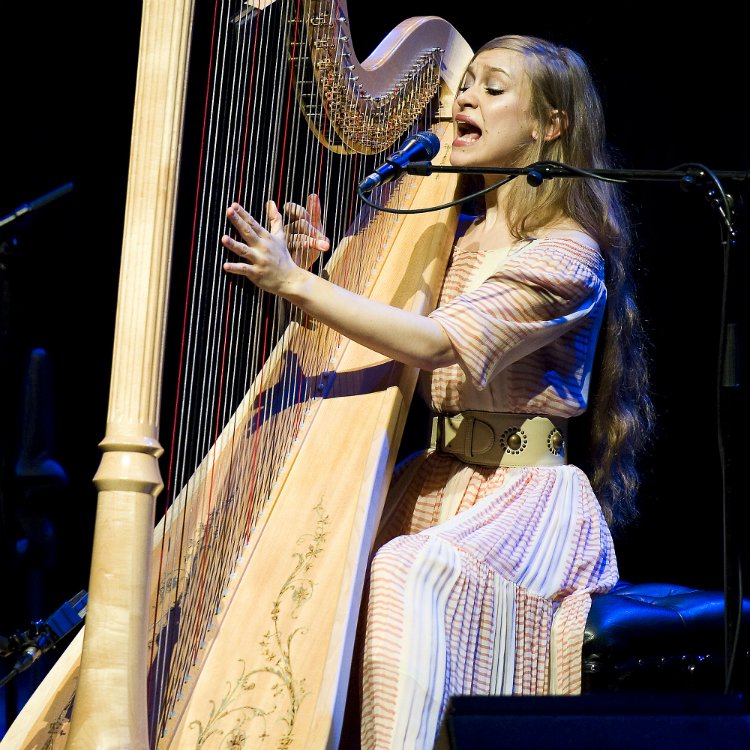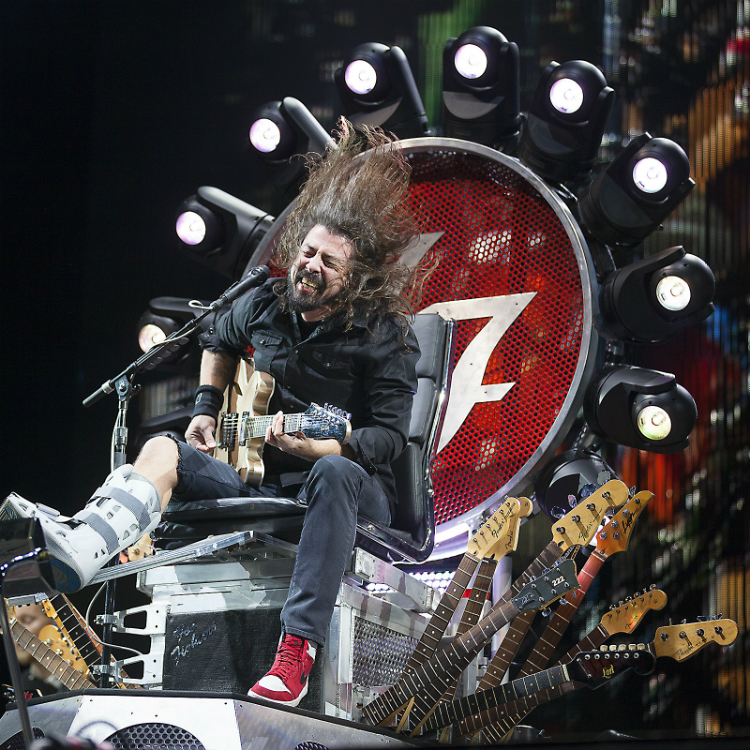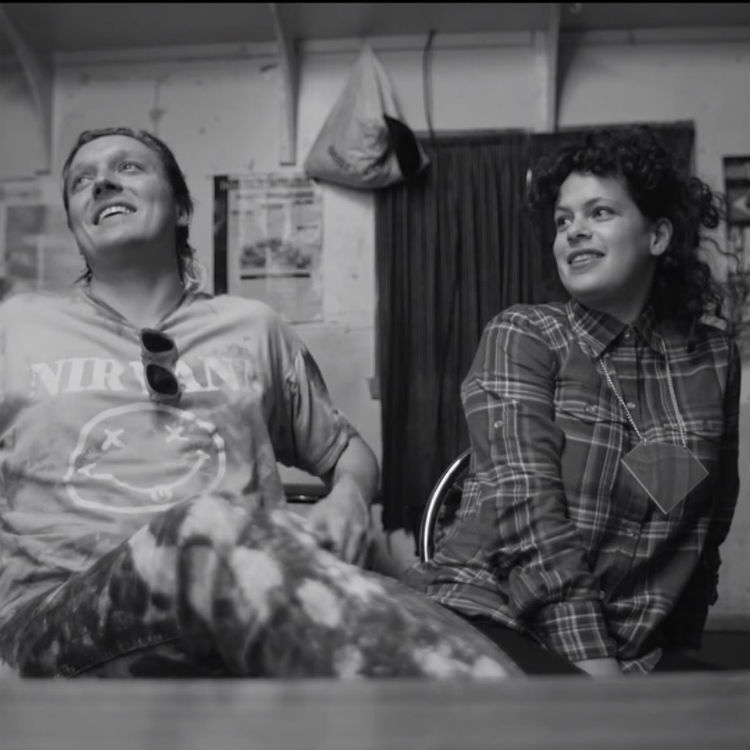 Photo:
Photo:

Sitting in his record label’s offices in North London, Plan B – real name Ben Drew – doesn’t look like your average rapper. There’s no flurry of girls swarming at his feet (not at the moment anyway) and there’s no Hummer parked out the front of the building with rims that are more metallic than Ugly Betty’s braces. Actually, there’s nothing to suggest that Drew isn’t just your average 23-year old from Forest Gate, East London – until he starts talking that is, when suddenly you can’t help but be captivated by what he’s saying.
In fact, it’s quickly apparent that talking is something that comes very easily to Drew. Four minutes in to our interview and Gigwise has to politely interrupt his answer to the first question. The initially coy and rather withdrawn rapper has become so transfixed in constructing an autobiography of his childhood and route into hip-hop that he’s now re-living the whole period on the edge of his seat. After all they are the years that created Plan B.
It wasn’t until after an elongated epoch of trial and error - where he went from writing lyrics for a primary-school band to writing teenage love songs about emotions he confesses that he’d “never experienced” - that he found hip-hop. Finding the genre’s raw, heart-on-its-sleeve honesty, however, was one of those life changing moments. “I started rapping, started doing hip-hop and started talking about issues that were fucking…a bit more real.”
What distinguished Drew, however, when he finally released his debut album, ‘Who Needs Actions When You Got Words,’ in 2006, was that his lyrics were pushed along by a minimal, acoustic backdrop. Hip-hop hadn’t seen this before and although the sound is now synonymous with Plan B – it’s something he was reluctant to use initially. “I’d pick up a guitar and play a little thing and I’d rap and people would say, ‘Wow that’s a great song but not only that, that’s a great way of doing it,’” he continues. “I’d go don’t watch this shit. I’ve got a beat in mind for this shit, the bass is gonna go like this and I was just using this purely to show you, and they were like, ‘No you should stick with that.’”
 Although he admits he “never saw the attraction,” the attention he got was suddenly opening up new eardrums. Does he not think that the guitars earthly vulnerability was the perfect compliment for his lyrics? “Oh yeah,” he agrees. “But at the time I could just not see why people were into it.” In fact, he admits that when he eventually succumbed to the guitar’s unique appeal it was just to impress record executives in the crowd so that he could finance his long term goal of getting a studio so he could “make all the hip-hop things I’ve been fucking banging on about.”
Although he admits he “never saw the attraction,” the attention he got was suddenly opening up new eardrums. Does he not think that the guitars earthly vulnerability was the perfect compliment for his lyrics? “Oh yeah,” he agrees. “But at the time I could just not see why people were into it.” In fact, he admits that when he eventually succumbed to the guitar’s unique appeal it was just to impress record executives in the crowd so that he could finance his long term goal of getting a studio so he could “make all the hip-hop things I’ve been fucking banging on about.”
All Drew could afford were cheap studio gadgets however, so after two and a half years of getting nowhere, his debut was eventually co-produced with Paul Epworth (Maximo Park). It proved to be an inspired collaboration because they effortlessly combined his acoustic anguish with contemporary samples including The Prodigy’s, ‘No Good.’ The record’s musical accomplishments, however, paled into insignificance when the Londoner’s relentless lyrics commenced. The lyrics didn’t just dissect society; they actively put everyone – from the lower classes to the people who thought that they didn’t have to care - right in the middle of it. Direct references to the murders of Damilola Taylor and Jill Dando and the troubles of underage sex, meant the album didn’t just take Drew into the music charts, its lyrics made him headlines. Not that he was bothered. Finally Britain was being unearthed as the malicious 21st century playground that it really is.
Unlike his contemporaries, Drew’s not content with just making obvious cultural comments. Instead he tries to produce mini biopics of the society which we all live in. As a lover of cinematography, that’s an accomplishment he’s proud to accept. “I talk about things that affect me. So, Damilola Taylor’s death coupled with the fact that when I see clips of people getting happy slapped on their phone disgusts me.” Drew shifts in his seat itching with fervour, and confesses. “So for me rather than just mention Damilola Taylor I decided to write a song through the eyes of someone who thought it was cool to murder a kid. I thought that would be more powerful and that it would drive through the message a lot harder, a lot stronger than me using a fucking metaphor, you know?”

Hip-hop’s lyrical content has long been a topic at Political forums and Drew’s kitchen sink honesty has seen him cast into the same conversations as hip-hop DJ, Tim Westwood - a comparison he’s not very happy about. “I just think they contradict themselves when they dish my shit. When they throw me into the argument and put me in the same league as Tim Westwood or any of those fucking people, they’re just showing how fucking ignorant they are about hip-hop music and that’s why they shouldn’t fucking attack it.”
In November 2006, he was invited to perform, ‘Where You From,’ on the DJ’s Radio show. After his rendition the DJ questioned the meaning behind the line, “Fuck the police, it’s a ghetto state of mind.” “He says to me, ‘How can you say fuck the police on Radio One? The police are there to protect you dog.” Drew divulges that ironically the song is actually about the kids who are influenced by the gangster rappers that Westwood “fucking champions.”
A few months on and Drew’s real angst with the DJ’s comments however, are that if UK hip-hop’s most influential DJ can’t understand him, then what chance has he got of ever grabbing a firm foothold in the UK and eventually, America. He adds, “The thing is that all Tim Westwood gives a fuck about is money, and hoes, and rims and fucking Cristal. That’s why he sucks up to these Americans so that he can get backstage at parties and fuck little girls, little 16 year old, 17 year old girls.”
As the conversation shifts bizarrely onto America (and quickly away from legal implications), it seems right to ask Drew about his album’s impending US April release. Are they ready for Plan B? “This country (UK) isn’t ready for me man.” As a wry smile casts over his face as he says this, but he’s only half joking. He’s a rapper who admits to feeling more comfortable in an indie club because “you’re not allowed to make noise at a hip-hop club unless there’s a hip-hop god on stage.” This isn’t blighting his US ambition however. “I hope that they’ll be more ready for it because of the whole Eminem thing over there and more susceptible to my way of writing.” You can’t help but admire his intrepid honesty as he admits that while success in the States would mean a lot to him, it’s something he’s maintaining a “cynical” anticipation on. His insecurity about America is also understandable. A premature journey over the Atlantic has cost a lot of artists their careers back in their homeland as well, and that’s something he literally can’t afford to lose.
The rapper – who still lives at home – admits that he has a lot of responsibilities now once his day job is complete. Not only has his mum just lost her job but she’s been fitted with a pacemaker because “she keeps on fucking collapsing everywhere.” It’s a dilemma that’s put Drew as the family’s main bread-winner. Consequently, there’s a lot more resting on his shoulders for his second album – which he says needs to go “gold at least.” Suddenly, it’s no longer about just getting some basic studio equipment to realise a dream.
The stark reality isn’t stopping him from aiming high, however. Playing on his cinematic enthusiasm, the rapper-come-director promises his second LP will unravel like a movie – with every track being a fresh scene of the film. Will there be an anthemic soundtrack to match? Definitely. The acoustic will be replaced by the sounds he’s wanted to use from day one. “I wanna experiment with drums, fucking double basses and cellos and string arrangements and shit but it just seems the one thing that everyone’s into is the fucking guitar on its own man,” he laughs. Will this not alienate his fan base though? “People have got to understand that I am me and anything that I choose to do is part of me and part of my talent, and if they’re a real fan then they’ll accept it and love me for it and they won’t fucking criticise me for it.”
Although there’s no doubt that the circumstances have changed, and that there’s more to lose than ever, you get the impression that the Plan B that wears his heart on his sleeve in 2007 is still very much operating the same Plan A that has shaped his life from his conception.
Live photo by: Shirlaine Forrest
































